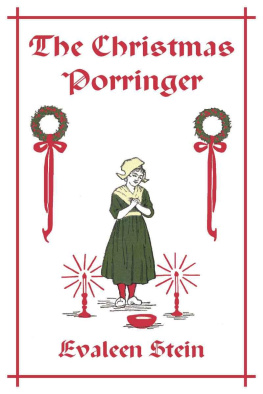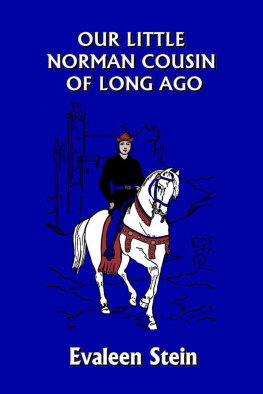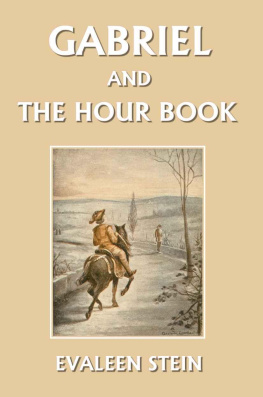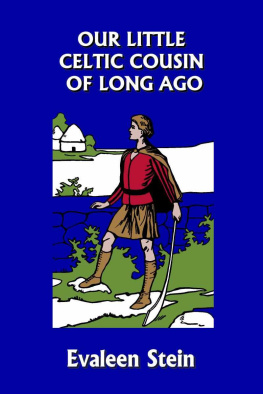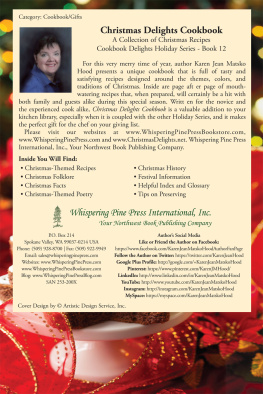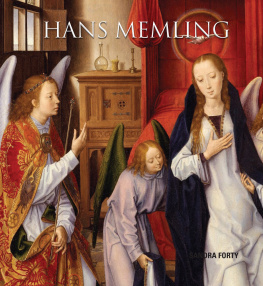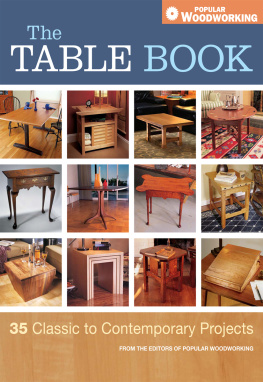Evaleen Stein - The Christmas Porringer
Here you can read online Evaleen Stein - The Christmas Porringer full text of the book (entire story) in english for free. Download pdf and epub, get meaning, cover and reviews about this ebook. year: 2006, publisher: Yesterdays Classics, genre: Detective and thriller. Description of the work, (preface) as well as reviews are available. Best literature library LitArk.com created for fans of good reading and offers a wide selection of genres:
Romance novel
Science fiction
Adventure
Detective
Science
History
Home and family
Prose
Art
Politics
Computer
Non-fiction
Religion
Business
Children
Humor
Choose a favorite category and find really read worthwhile books. Enjoy immersion in the world of imagination, feel the emotions of the characters or learn something new for yourself, make an fascinating discovery.
- Book:The Christmas Porringer
- Author:
- Publisher:Yesterdays Classics
- Genre:
- Year:2006
- Rating:3 / 5
- Favourites:Add to favourites
- Your mark:
- 60
- 1
- 2
- 3
- 4
- 5
The Christmas Porringer: summary, description and annotation
We offer to read an annotation, description, summary or preface (depends on what the author of the book "The Christmas Porringer" wrote himself). If you haven't found the necessary information about the book — write in the comments, we will try to find it.
The Christmas Porringer — read online for free the complete book (whole text) full work
Below is the text of the book, divided by pages. System saving the place of the last page read, allows you to conveniently read the book "The Christmas Porringer" online for free, without having to search again every time where you left off. Put a bookmark, and you can go to the page where you finished reading at any time.
Font size:
Interval:
Bookmark:
All rights reserved. No part of this book may be reproduced or retransmitted in any form or by any means without the written permission of the publisher.
This edition, first published in 2010 by Yesterday's Classics, an imprint of Yesterday's Classics, LLC, is an unabridged republication of the work originally published by The Page Company in 1914. This title is available in a print edition (ISBN 978-1-59915-193-9).
Yesterday's Classics republishes classic books for children from the golden age of children's literature, the era from 1880 to 1920. Many of our titles are offered in high-quality paperback editions, with text cast in modern easy-to-read type for today's readers. The illustrations from the original volumes are included except in those few cases where the quality of the original images is too low to make their reproduction feasible. Unless specified otherwise, color illustrations in the original volumes are rendered in black and white in our print editions.
O VER the old Flemish city of Bruges the wintry twilight was falling. The air was starry with snowflakes that drifted softly down, fluttering from off the steep brown roofs, piling up in corners of ancient doorways, and covering the cobblestones of the narrow streets with a fleecy carpet of white.
At a corner of one of the oldest of these and facing on another no wider than a lane, but which bore the name of The Little Street Of The Holy Ghost, a number of years ago there stood a quaint little house built of light yellow bricks. It had a steep gabled roof, the bricks that formed it being arranged in a row of points that met at the peak beneath a gilded weather-vane shaped like an arrow. The little house had no dooryard, and a wooden step led directly from its entrance to the flagstones that made a narrow, uneven walk along that side of the street.
Icicles hung from the edge of the brown roof and twinkled in a crystal fringe around the canopy of the little shrine up in the corner of the dwelling. For, like so many others of the old city, the little house had its own shrine. It was a small niche painted a light blue, and in it, under a tiny projecting canopy of carved wood, stood a small figure of the Virgin Mother holding the Christ-child in her arms. Now and then a starry snowflake drifted in beneath the canopy and clung to the folds of the Virgin's blue robe or softly touched the little hands of the Christ-child nestling against her breast.
And, by and by, as the wind rose and blew around the corner of the house, it began to pile up the snow on the sills of the casement windows whose small panes of glass lighted the room within, where sat an old woman and a little girl. The woman was clad in a plain black gown, such as is still worn by the humbler of the Flemish dames, and on her silvery hair was a stiffly starched cap of white.
The little girl was dressed much the same, save that her light brown hair was not hidden but braided in two plaits that were crossed and pinned up very flat and tight at the back of her head.
The woman was bending over a rounded pillow, covered with black cloth, which she held in her lap; it was stuck full of stout pins, and around these was caught a web of fine threads each ending in a tiny bone bobbin, and beneath her skillful fingers, as they deftly plied these bobbins in and out, a delicate piece of lace was growing; for it was thus that she earned bread for herself and the little girl.
Indeed, the lace of Bruges, made by the patient toil of numberless of her poorer people, has for many centuries been famous for its fineness and beauty. And those who so gain their livelihood must often begin to work while they are still children, even as young as the little girl who sat there in the twilight by the window of the little yellow house.
She, too, was bending over a black-covered pillow, only hers was smaller and had fewer bobbins than that of the white-capped woman beside her; for the child was just beginning to learn some of the simpler stitches. But though the bit of lace on the pillow showed that she had made good progress, she was working now slowly and had already broken her thread twice, for her mind was full of other thoughts.
She was thinking that the next night would be Christmas eve, and that she would set her little wooden shoes by the hearth, and that if she had been good enough to please the Christ-child, he would come while she was asleep and put in them some red apples and nuts, or perhapsperhaps he might bring the little string of beads she wanted so much. For Flemish children do not hang up their stockings for Santa Claus as do the children of our land, but instead, at Christmas time, they set their little shoes on the hearth and these they expect the Christ-child himself to fill with gifts.
As the little girl by the window now thought and thought of Christmas, her fingers dropped the thread at last and, looking up from her task with her blue eyes full of dreams, "Grandmother," she said softly, "will the Christ-child surely come again tomorrow night? And do you think he will bring me something?"
"Why, yes, Karen, thou hast been a good child," answered Grandmother, who was trying hard to finish a difficult part of her lace pattern before the dark fell.
"And, Grandmother," went on Karen, after thinking a little longer, "is it really his own birthday?"
"Yes, yes, child," said Grandmother.
"Then," said Karen, as a bewildered look crept into her eyes, "why is it that he brings gifts to me, instead of my giving something to him? I thought on people's birthdays they had presents of their own. You know on my last one you gave me my blue kerchief, and the time before, my pewter mug." Karen considered a moment more, and then she added: "Is it because we are so poor, Grandmother, that I have never given the Christ-child a Christmas present?"
Here Grandmother's flying fingers paused an instant, though still holding a pair of the tiny bobbins, as she answered, "It is true we are poor, Karen, but that is not the reason. No one gives such gifts to the Christ-child. Thou must give him obedience and love; dost thou not remember what Father Benedicte told thee? And then, too, thou knowest thou art to carry a wax candle to the cathedral for a Christmas offering at the shrine of the Blessed Virgin and Child."
"But," continued Karen perplexedly, "does no one give him something for his very own?"
"There, there, child," said Grandmother, with a note of weariness in her patient voice, "I cannot work and answer thy questions!"
And Grandmother bent still closer over the flower of lace which she was trying so hard to finish, and the little girl became silent.
After a while, from the beautiful tall belfry that soared into the sky from the center of the city, the chimes rang out the hour, and, no longer able to see in the gathering dusk, Grandmother rose and laid aside her work.
"Come, Karen," she said, "put up thy work, and get thy shawl and go fetch some water for the tea-kettle."
The little girl carefully placed her lace-pillow on a shelf at one side of the room; and taking a knitted shawl from a peg near the doorway, she ran to the dresser and lifted down a copper tea-kettle, polished till it shone. Then she unbarred the door and sped out into the snowy dusk.
She had but a short distance to go to the quaint pump that served the neighborhood. It stood among the cobblestones of the narrow street, and had been made long, long ago, when the workmen of even the commonest things loved their craft and strove to make everything beautiful that their fingers touched. So the pump had a wonderful spout of wrought iron shaped like a dragon's head; and as Karen tugged at the long, slender handle of the same metal, she laughed to see how the icicles hung from the dragon's mouth like a long white beard. She liked to pretend that he was alive and wanting to eat her up, and that she was very brave to make him fill her tea-kettle; for Karen loved fairy stories and lived a great deal in her own thoughts.
Font size:
Interval:
Bookmark:
Similar books «The Christmas Porringer»
Look at similar books to The Christmas Porringer. We have selected literature similar in name and meaning in the hope of providing readers with more options to find new, interesting, not yet read works.
Discussion, reviews of the book The Christmas Porringer and just readers' own opinions. Leave your comments, write what you think about the work, its meaning or the main characters. Specify what exactly you liked and what you didn't like, and why you think so.

